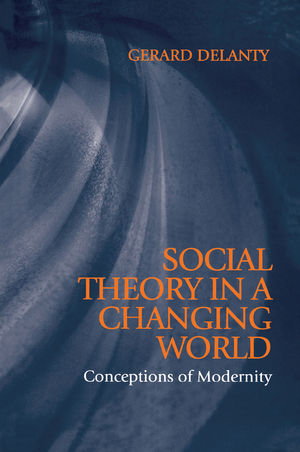Social Theory in a Changing World: Conceptions of ModernityISBN: 978-0-7456-1918-7
Paperback
224 pages
August 1999, Polity
 This is a Print-on-Demand title. It will be printed specifically to fill your order. Please allow an additional 10-15 days delivery time. The book is not returnable.
|
||||||
Introduction.
The central Conflict of Modernity.
Knowledge and Culture.
Towards a Cognitive Approach.
.
1. Defining Modernity: The Quest for Autonomy.
Introduction.
Modernity's Three Logics of Development.
Integration and Differentiation.
Conclusion: The Time-Consciousness of Modernity.
2. The Limits of Modernity: From Autonomy to Fragmentation.
Introduction.
Rethinking Modernity.
Autonomy versus Fragmentation: The Loss of Unity.
Beyond the Classical Tradition: Contemporary Theories of the Social. Conclusion: Towards a New Time-Consciousness.
3. Discourse and Democracy: Habermas's Theory of Modernity. .
Introduction.
The Problem of Democracy.
The Formation of Habermas's Social Theory.
Rescuing Discourse: The Mediation of Democracy and Law.
Discursive Democracy in the Global Public Sphere.
The Question of Culture and Identity. Conclusion: Culture and Discourse.
4. Creativity and the Rise of Social Postmodernism: Foucault, Lyotard and Bauman. .
Introduction.
From Deconstructionism to Constructivism. Bauman: Ethics and Postmodernity.
Conclusion: Beyond Postmodernism.
5. The Return of Agency: Touraine and Melucci.
Introduction.
Touraine: From Historicity to the End of the Social. Melucci: Culture, Identity and Change.
Conclusion: Reflexivity and Democracy.
6. Reflexive Modernization: Beck and Giddens. .
Introduction.
Beck and the Risk Society. Giddens: Modernity, Reflexivity and Trust.
Assessing Reflexive Modernization: The Question of Culture.
Conclusion: Reflexivity and Discourse.
Conclusion: Knowledge, Democracy and Discursive Institutionalization.
Notes.
Bibliography.
Index.



